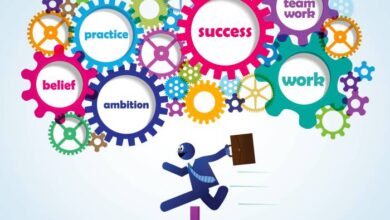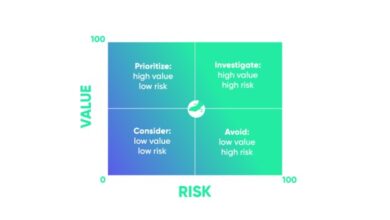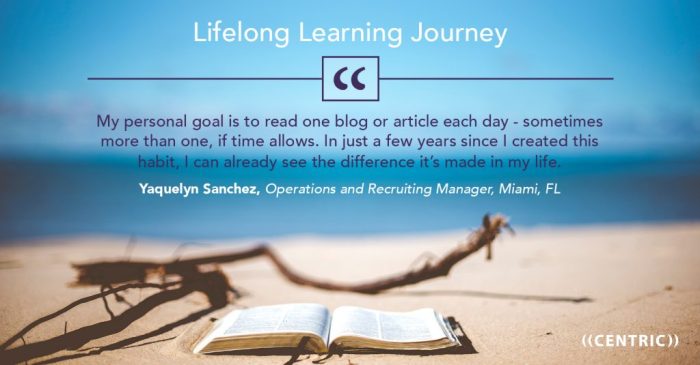
The mentors touch guiding lifelong learning journeys – The Mentors Touch: Guiding Lifelong Learning Journeys is a comprehensive exploration of mentorship’s vital role in fostering continuous learning. This journey delves into the nuances of the “mentor’s touch,” examining its distinct characteristics, emotional impact, and alignment with effective lifelong learning principles. We’ll explore how mentorship impacts learning outcomes, the practical methods for successful mentoring, and the challenges involved.
The evolution of mentorship throughout life, from early career to later stages, will also be highlighted, showing how mentors adapt to changing needs. Finally, we’ll consider how to cultivate a supportive culture of mentorship within communities and organizations.
Through real-world examples and case studies, this article provides a framework for understanding how mentorship can be a powerful catalyst for personal and professional growth. It equips readers with the knowledge and strategies to navigate the complexities of mentoring relationships, empowering them to become effective mentors or mentees.
Defining the Mentors’ Touch
The “mentor’s touch” is more than just guidance; it’s a unique blend of support, encouragement, and understanding that fosters lasting growth in a mentee. It’s a personalized approach to lifelong learning, tailored to the specific needs and aspirations of the individual. This nuanced interaction transcends simple advice-giving and instead cultivates a deep and meaningful connection that empowers the mentee to navigate challenges and achieve their goals.A mentor’s influence is distinguished by its proactive nature and personalized approach.
Unlike a teacher or advisor who might provide general knowledge or direction, a mentor actively seeks to understand the mentee’s individual context, aspirations, and challenges. This personalized touch is crucial in nurturing self-discovery and fostering a deeper sense of belonging within the learning journey.
Emotional and Psychological Impact
A mentor’s impact extends beyond the intellectual realm. A strong mentor-mentee relationship fosters a supportive environment that nurtures emotional growth. The feeling of being understood and valued, of having someone invested in their success, can significantly enhance self-esteem and confidence. This emotional support provides a critical buffer against setbacks and allows the mentee to embrace challenges with resilience and optimism.
A positive mentor-mentee dynamic can instill a sense of purpose and direction, shaping the mentee’s worldview and long-term aspirations.
Key Characteristics of a Mentor’s Touch
The mentor’s touch possesses distinct characteristics that differentiate it from other forms of support. These distinguishing features include:
- Proactive engagement: Mentors don’t just react to situations; they anticipate potential obstacles and proactively offer guidance and support. This proactive approach fosters a sense of empowerment and trust.
- Personalized approach: A mentor tailors their guidance to the mentee’s unique learning style, personality, and aspirations. This individualized attention creates a more meaningful and impactful learning experience.
- Building trust and rapport: The mentor-mentee relationship thrives on mutual respect, empathy, and understanding. Trust is the cornerstone of this connection, allowing for open communication and honest feedback.
- Fostering self-reliance: The mentor’s goal is to empower the mentee to become self-sufficient learners. This involves providing guidance, resources, and encouragement, while ultimately supporting the mentee’s independent growth.
Framework for Understanding Types of Mentors’ Touch
Mentoring styles and approaches vary significantly, but can be broadly categorized based on the primary focus of the relationship. A useful framework for understanding different types of mentors’ touch includes:
| Type of Mentorship | Primary Focus | Example |
|---|---|---|
| Developmental Mentorship | Focusing on personal and professional growth. | A young professional seeking career advancement might be mentored by a senior executive, focusing on skill development and networking opportunities. |
| Guidance Mentorship | Providing specific guidance and direction. | A student struggling with academic performance might be mentored by a professor who offers targeted support and resources. |
| Supportive Mentorship | Building confidence and emotional support. | A person facing a personal challenge might benefit from a mentor who provides emotional support and guidance through difficult situations. |
Guiding Principles of Lifelong Learning Journeys: The Mentors Touch Guiding Lifelong Learning Journeys
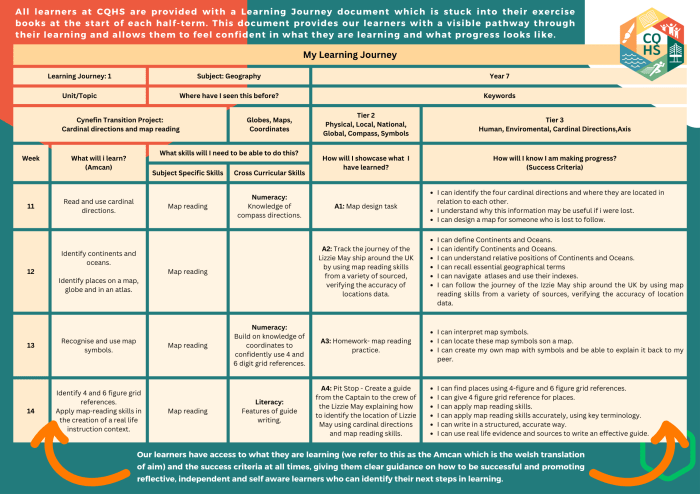
Embarking on a lifelong learning journey is a profound and enriching experience. It’s not just about acquiring knowledge; it’s about cultivating a mindset of continuous growth and adaptation. A key element in this journey is the supportive role of a mentor, someone who can guide, inspire, and challenge learners to reach their full potential.Effective mentors understand that lifelong learning isn’t a destination but a continuous process of exploration and refinement.
They help learners identify their unique learning styles, leverage their strengths, and overcome challenges along the way. This supportive approach empowers individuals to not only acquire knowledge but also develop critical thinking skills and problem-solving abilities.
Core Principles of Lifelong Learning
Lifelong learning journeys are built on several fundamental principles. These principles act as cornerstones for effective learning, guiding individuals toward meaningful and sustainable growth. The core principles encompass a holistic approach to knowledge acquisition and skill development.
- Curiosity and Inquiry: A deep-seated curiosity and a willingness to ask questions are essential for any learner. This curiosity fuels the desire to explore new ideas and challenges, ultimately fostering continuous learning.
- Self-Awareness and Reflection: Understanding one’s own learning style, strengths, and weaknesses is crucial. This self-awareness allows for tailored learning strategies, promoting a deeper and more meaningful comprehension of acquired knowledge. Reflection on experiences, both successes and failures, further enhances the learning process.
- Adaptability and Resilience: The ability to adapt to new information and situations is critical. Lifelong learning requires a willingness to embrace change and navigate challenges with resilience. Learning from setbacks is just as important as celebrating achievements.
- Collaboration and Community: Learning isn’t a solitary endeavor. Collaboration with others, both mentors and peers, broadens perspectives, fosters innovation, and provides support during the learning journey. A supportive community of learners can significantly enhance motivation and achievement.
Mentoring and Lifelong Learning
Mentors play a crucial role in nurturing these principles. They act as guides, providing support and encouragement while challenging learners to reach their full potential.
- Identifying Learning Styles: Mentors can help learners understand their unique learning preferences (visual, auditory, kinesthetic) and tailor their approach accordingly, making the learning process more engaging and effective.
- Fostering Motivation: Mentors inspire learners by connecting their aspirations with learning opportunities, fostering intrinsic motivation, and setting achievable goals. They celebrate small victories and provide encouragement during challenging times.
- Promoting Self-Discovery: Mentors facilitate self-discovery by helping learners identify their interests, values, and passions, linking them to relevant learning experiences and career paths. They encourage learners to explore different areas of knowledge and develop a personalized learning plan.
- Providing Support and Accountability: Mentors provide a supportive environment where learners feel comfortable asking questions, seeking feedback, and discussing challenges. They offer constructive criticism and hold learners accountable for their progress, while ensuring a supportive environment.
Motivation and Self-Discovery in Lifelong Learning
Motivation and self-discovery are intertwined and vital for sustaining lifelong learning. Intrinsic motivation—driven by internal desires and interests—is essential for long-term engagement.
- Connecting Learning to Personal Values: Mentors can help learners identify how different areas of knowledge align with their values and aspirations. This connection fosters a sense of purpose and meaning in the learning process, fueling motivation and sustaining interest.
- Celebrating Milestones: Acknowledging and celebrating small milestones, both academic and personal, is crucial for maintaining motivation. These celebrations reinforce positive habits and keep learners engaged in the learning journey.
Impact of Mentorship on Learning Outcomes
Mentorship is a powerful catalyst for learning, going beyond the traditional classroom experience. It offers a unique opportunity for personalized guidance and support, fostering deeper understanding and skill development. A mentor’s insights, experience, and encouragement can significantly impact a mentee’s learning journey, leading to tangible improvements in knowledge, skills, and attitudes. This impact extends far beyond the immediate learning experience, shaping future career paths and personal growth.Mentorship fosters a dynamic learning environment.
Unlike passive learning methods, mentorship encourages active participation and critical thinking. Mentors act as guides, facilitators, and role models, empowering mentees to navigate challenges and explore their full potential. This personalized approach allows for tailored learning strategies, addressing individual strengths and weaknesses.
Enhanced Knowledge Acquisition
Mentors often possess extensive knowledge and experience in their field. This allows them to provide valuable insights and perspectives that can significantly enhance a mentee’s understanding of complex concepts. They can connect theoretical knowledge with practical applications, making learning more relevant and engaging. A mentor who is a seasoned software engineer, for example, can guide a mentee through real-world coding challenges, helping them master technical skills.
Skill Development Through Practical Application
Mentors can provide opportunities for practical application of knowledge. They can introduce mentees to real-world problems and situations, guiding them through the process of developing practical skills. This hands-on approach allows mentees to apply their knowledge in diverse contexts, refining their skills and building confidence. A mentor working in marketing, for instance, could help a mentee develop compelling marketing campaigns by providing feedback on their drafts and connecting them with relevant professionals.
Cultivating Positive Attitudes and Work Ethic
Mentors often act as positive role models, inspiring mentees to develop desirable attitudes and work ethics. They can guide mentees on how to approach challenges, manage stress, and persevere through setbacks. A mentor’s positive attitude and commitment to professional development can instill these values in the mentee, leading to improved resilience and a strong work ethic. This is especially valuable for younger professionals, who can benefit from observing successful strategies and problem-solving techniques.
Measurable Improvements in Learning Outcomes
Mentorship leads to measurable improvements in knowledge, skills, and attitudes. Studies have shown that mentees who participate in mentorship programs often exhibit higher levels of engagement, improved grades, and increased confidence in their abilities. Furthermore, mentees are better equipped to apply their knowledge and skills to real-world scenarios. For instance, a study conducted by the National Mentoring Partnership showed that mentored students consistently performed better in standardized tests and demonstrated higher levels of self-esteem compared to their non-mentored peers.
Comparison with Other Learning Methods
While other learning methods, such as classroom instruction and self-study, are valuable, mentorship offers a unique and often more effective approach. Classroom instruction provides a broad overview, but mentorship offers personalized guidance and support. Self-study can be effective, but mentorship provides a structured approach and accountability. Mentorship combines the benefits of structured learning with the advantages of personalized support and practical experience.
It allows for immediate feedback, tailored guidance, and the development of a strong professional network. A mentee can benefit from a mentor’s experience and insight, and in turn, a mentor can learn from the fresh perspective of a mentee.
Long-Term Effects on Career and Personal Growth
A mentor’s influence extends far beyond the immediate learning experience. A mentor can provide valuable career guidance, open doors to networking opportunities, and help mentees develop the necessary skills for career advancement. Mentorship also fosters personal growth by helping mentees develop critical thinking, problem-solving, and communication skills. These skills are crucial for navigating challenges and achieving personal and professional goals.
Methods and Strategies for Effective Mentorship
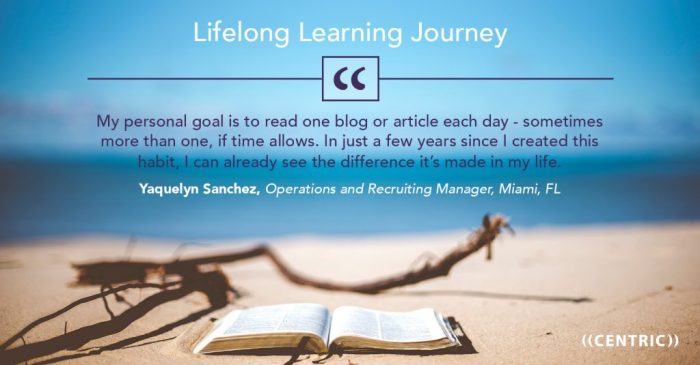
Mentorship is more than just advice; it’s a carefully crafted journey of guidance and support. Effective mentorship requires a nuanced approach, adapting to the unique needs and circumstances of both the mentor and the mentee. Different methods and strategies are crucial for cultivating a positive and productive relationship, ultimately fostering lifelong learning.Mentoring is not a one-size-fits-all process. Success hinges on tailoring the approach to the individual context, whether it’s a student-teacher relationship, a professional setting, or a peer-to-peer connection.
This requires a deep understanding of the mentee’s goals, aspirations, and learning style. Adapting methods and strategies to the specific circumstances ensures the mentorship experience is engaging and impactful.
Different Mentoring Approaches
Various approaches to mentorship can be implemented, each with its own strengths and suitability for different contexts. One approach, for example, involves a collaborative partnership where both mentor and mentee actively participate in setting goals and developing strategies. Another approach emphasizes the mentor’s role as a guide, offering insights and resources while allowing the mentee to take ownership of their learning journey.
The selection of the appropriate approach is crucial for maximizing the benefits of mentorship.
Mentors truly shape our journeys, guiding us through the twists and turns of lifelong learning. It’s fascinating to see how Microsoft is pushing the boundaries with its latest developments, like microsoft lets devs take a spin on winpho7 , demonstrating a commitment to innovation. Ultimately, those mentors and these advancements fuel a continuous pursuit of knowledge and growth, allowing us to navigate the ever-changing landscape of learning.
Practical Application of Mentoring Approaches
In an educational setting, a collaborative approach might involve working with a student on project development, providing resources and feedback, and encouraging the student to take ownership of the process. In a professional context, a guided approach might involve a senior executive providing a framework for a junior executive to develop their skills, offering insights and feedback while encouraging independent action.
Steps in Establishing a Mentoring Relationship
The table below Artikels the key steps involved in establishing a strong mentoring relationship. This structured approach helps to ensure a smooth and productive journey for both the mentor and the mentee.
| Step | Description |
|---|---|
| 1 | Initial Contact and Rapport Building |
| 2 | Defining Goals and Expectations |
| 3 | Active Listening and Support |
| 4 | Setting Clear Communication Channels |
| 5 | Regular Check-ins and Progress Evaluation |
| 6 | Providing Constructive Feedback |
| 7 | Celebrating Milestones and Achievements |
The Role of Communication in Mentoring
Clear and consistent communication is paramount in fostering a positive mentoring experience. Open dialogue, active listening, and the ability to provide constructive feedback are crucial elements of effective mentorship. A mentor should be adept at understanding the mentee’s needs and concerns, adapting their communication style accordingly. This includes ensuring that the mentee feels comfortable sharing their thoughts and concerns without fear of judgment.
Active listening is equally important, enabling the mentor to fully grasp the mentee’s perspective. Finally, constructive feedback should be delivered in a supportive and encouraging manner, focusing on growth and improvement rather than fault-finding. This will create a safe and trusting environment where learning and growth can flourish.
Overcoming Challenges in Mentoring Relationships
Mentoring relationships, while profoundly rewarding, can sometimes face unexpected obstacles. These challenges, if not addressed constructively, can hinder the growth and development of both the mentor and mentee. Understanding these potential pitfalls and developing strategies to navigate them is crucial for fostering successful and lasting mentoring partnerships.Effective mentorship hinges on mutual respect, open communication, and a shared commitment to learning.
However, mismatched expectations, differing communication styles, or personal conflicts can create tension. By recognizing these potential challenges and proactively addressing them, mentors and mentees can cultivate stronger, more fulfilling relationships that ultimately benefit both parties.
Identifying Potential Challenges
Navigating mentoring relationships requires an understanding of the potential roadblocks that can arise. Mismatched expectations about the mentoring relationship are common. One party might envision a more directive approach, while the other prefers a collaborative style. Similarly, differing communication styles, personal preferences, or differing levels of experience and expertise can create misunderstandings. Time constraints, conflicting schedules, or competing priorities can also impede consistent engagement.
Strategies for Navigating Challenges
Establishing clear expectations at the outset is paramount. A well-defined mentoring agreement outlining roles, responsibilities, and frequency of meetings can prevent misinterpretations. Open and honest communication is essential. Creating a safe space for both mentor and mentee to express concerns, share feedback, and address disagreements is vital. Flexibility and adaptability are key.
Mentors and mentees should be prepared to adjust their approach as the relationship evolves and challenges arise. Building a strong foundation of trust and mutual respect is the cornerstone of effective mentorship.
Empathy and Understanding in Addressing Difficulties, The mentors touch guiding lifelong learning journeys
Empathy plays a critical role in navigating mentoring challenges. Mentors should strive to understand the mentee’s perspective, acknowledging their unique experiences, motivations, and challenges. Conversely, mentees should demonstrate empathy towards the mentor’s time constraints, expertise, and limitations. Active listening, acknowledging emotions, and demonstrating genuine care for each other’s well-being are essential components of navigating differences constructively.
Conflict Resolution Strategies
When conflicts arise, a proactive approach to conflict resolution is crucial. A mentor should create a safe environment for addressing disagreements, focusing on understanding the underlying issues. Active listening and open dialogue are essential. Mentors and mentees should agree on a process for resolving conflicts, perhaps involving a mediator or a neutral third party if necessary. Compromise and collaboration are key elements in finding mutually acceptable solutions.
Examples include:
- Clearly defining expectations and responsibilities at the outset of the mentorship. This helps avoid misunderstandings and ensures both parties are on the same page regarding the scope of the mentorship.
- Actively listening to each other’s perspectives and concerns, even when disagreements arise. Demonstrating genuine interest in understanding the other person’s viewpoint can significantly reduce tension.
- Developing a structured approach for addressing disagreements, such as scheduling specific time slots for conflict resolution or using a collaborative problem-solving framework. Having a clear process in place can provide a sense of control and predictability during difficult conversations.
A crucial element is to focus on finding common ground. This involves acknowledging shared goals and identifying areas of agreement. A collaborative approach, emphasizing teamwork and shared responsibility, can often resolve conflicts effectively.
Examples of Mentorship in Action
Mentorship isn’t just a theoretical concept; it’s a powerful force that can transform learning journeys. Real-world examples demonstrate how a supportive mentor can guide mentees through challenges, fostering deeper understanding and unlocking their full potential. This section delves into specific instances where mentorship positively impacted learning, highlighting the diverse ways mentorship can shape learning outcomes.Mentorship takes on many forms, each with its own unique contribution.
Mentors truly are invaluable, guiding us on our lifelong learning journeys. Their insights, like the intricate patterns of sunspots, often reveal hidden depths. Exploring these patterns, like delving into shining some light on sunspots , can illuminate the path forward. Ultimately, a mentor’s touch empowers us to continue exploring and growing throughout our lives.
A seasoned professional in a particular field can provide invaluable insights, while a peer mentor offers a relatable perspective. These examples show how different approaches can be effective in various learning contexts.
Mentors are truly invaluable, guiding us through the twists and turns of learning. Their touch fosters a continuous journey of self-improvement, especially in today’s rapidly evolving landscape. This extends to understanding the critical role of CIOs in navigating the complexities of the cloud, like how they’re adapting and leading their organizations in the cios place in the cloud.
Ultimately, a mentor’s influence is a powerful force in lifelong learning, propelling us forward and shaping our paths.
A Mentor’s Touch on a Student’s Research Project
A high school student, Emily, was struggling with her research project on sustainable agriculture. She was overwhelmed by the complexity of the topic and lacked the practical experience to gather data effectively. Her teacher, Mr. Davis, recognized her potential and offered mentorship. He guided her through the research process, providing resources, connecting her with local farmers, and encouraging her to ask insightful questions.
He helped her develop a clear research question and design a methodology. Mr. Davis also helped Emily organize her findings and present them clearly, boosting her confidence and critical thinking skills. Ultimately, Emily’s project received top honors at the regional science fair. This example illustrates how a mentor can transform a challenging project into a powerful learning experience.
Diverse Types of Mentorship
Different types of mentorship can significantly impact learning journeys in various ways. A corporate mentor can guide a junior employee on professional development, providing insights into career strategies and industry best practices. A community leader can guide young adults in leadership roles, fostering their skills in public speaking and decision-making. A peer mentor can provide emotional support and share relatable experiences, offering encouragement and motivation.
The effectiveness of mentorship depends on the specific needs and goals of the mentee and the suitability of the mentor’s approach.
Case Studies of Successful Mentorship Programs
Numerous programs demonstrate the impact of structured mentorship. One notable program, the “Future Leaders” initiative, pairs high-achieving students with professionals in their desired fields. This program has shown impressive results, with participants reporting significant improvements in academic performance, career aspirations, and overall well-being. The program emphasizes communication, problem-solving, and collaboration skills. Other programs, such as “STEM Mentorship,” focus on guiding students in STEM fields, providing opportunities for hands-on experience and exposure to cutting-edge technologies.
These case studies highlight the long-term benefits of intentional mentorship programs.
Visual Representation of the Mentor-Mentee Relationship
The mentor-mentee relationship can be visualized as a journey with distinct milestones. Early stages involve building trust and rapport. As the relationship progresses, mentors provide guidance and support, helping mentees develop skills and knowledge. Key milestones, such as successful project completion or achieving a career goal, mark significant progress. The relationship can evolve over time, with the mentor offering increasingly challenging opportunities and the mentee taking on more responsibility.
| Stage | Description | Example |
|---|---|---|
| Initial Contact | Establishing rapport, identifying goals | Mentor and mentee discuss interests, aspirations, and learning objectives. |
| Skill Development | Providing guidance, fostering growth | Mentor guides mentee through project work, offering feedback and resources. |
| Goal Achievement | Celebrating milestones, expanding opportunities | Mentee successfully completes a project, receiving recognition and further opportunities. |
| Continued Growth | Mentorship continues with evolving challenges | Mentor and mentee maintain connection, supporting mentee’s professional advancement. |
The Evolution of Mentorship Throughout Life
Mentorship is a dynamic relationship, adapting and evolving as individuals grow and change. It’s not a static role, but rather a journey of shared learning and support that transforms as the mentee’s needs shift. The mentor’s role isn’t just about imparting knowledge; it’s about understanding and nurturing the mentee’s unique path.The nature of mentorship changes significantly as individuals move through various life stages.
A mentor who effectively guides a mentee in their early career may need to adapt their approach as the mentee navigates mid-career challenges and aspirations. This adaptation is key to the continued success of the mentoring relationship.
Adapting the Mentor’s Role
Mentorship is not a one-size-fits-all approach. A mentor’s role needs to adjust based on the mentee’s evolving needs and goals. This flexibility allows the relationship to remain relevant and valuable throughout the mentee’s life journey. A mentor’s focus should shift from technical skills to broader career strategies as the mentee progresses.
Examples of Mentorship Across Life Stages
Mentorship plays a vital role in guiding individuals through significant life transitions. In early career stages, a mentor might provide guidance on technical skills, networking opportunities, and professional etiquette. As individuals progress into mid-career, the focus might shift towards career advancement, leadership development, and strategic planning. Later in life, mentorship could encompass navigating retirement, financial planning, or even supporting a mentee’s personal growth.
- Early Career: A young software engineer seeking mentorship may benefit from guidance on coding best practices, project management techniques, and understanding industry trends. The mentor can help them build their network and develop essential soft skills.
- Mid-Career: A mid-level manager looking for advancement might find value in a mentor who can help them develop leadership qualities, refine their communication skills, and create a compelling career narrative. The mentor can help the mentee navigate complex organizational dynamics and identify opportunities for growth.
- Later Career: An experienced professional transitioning into retirement might find a mentor invaluable for understanding financial planning strategies, securing their future, or even pursuing new passions. The mentor’s role might encompass exploring alternative career paths, providing emotional support, and assisting with legacy planning.
Changing Roles and Responsibilities of Mentors
The following table illustrates the evolving roles and responsibilities of mentors as mentees progress through different life stages.
| Life Stage | Mentor’s Focus |
|---|---|
| Early Career | Skill development, networking, professional development, building foundational knowledge |
| Mid-Career | Career advancement, leadership development, strategic planning, navigating organizational complexities |
| Later Career | Retirement planning, financial management, personal growth, legacy planning, exploring new passions |
Creating a Culture of Mentorship
Cultivating a culture of mentorship within organizations, communities, and educational institutions fosters a supportive environment for lifelong learning. This environment empowers individuals to reach their full potential, encourages knowledge sharing, and promotes continuous growth. Mentorship programs become integral to organizational success and personal development.A culture of mentorship is not simply a program; it’s a mindset. It’s about integrating mentorship into the fabric of daily interactions, emphasizing its value, and creating structures that encourage it to thrive.
This proactive approach ensures that mentorship becomes a core element of professional and personal growth.
Strategies for Fostering a Culture of Mentorship
Creating a culture of mentorship involves multiple strategic approaches. These initiatives need to be embedded within existing structures and practices to become truly integrated. Key strategies include establishing clear mentorship guidelines, providing resources for mentors and mentees, and recognizing and celebrating mentorship successes.
- Formal Mentorship Programs: Implementing structured programs with defined roles, responsibilities, and timelines provides a framework for mentorship to flourish. These programs should include initial training for mentors and mentees, ongoing support, and opportunities for feedback. For example, a university’s career center might launch a mentorship program connecting students with professionals in their desired fields.
- Mentorship as a Core Value: Organizations can explicitly state mentorship as a core value. This demonstrates a commitment to continuous learning and professional development, encouraging employees to actively seek out mentorship opportunities. This commitment can be expressed in company mission statements and employee handbooks.
- Creating a Supportive Environment: Mentorship thrives in an environment that values open communication, trust, and respect. This environment needs to be fostered through regular team-building activities, open-door policies, and active listening to concerns.
- Mentorship Training for All: Offering training for everyone, not just potential mentors, can build a culture where everyone understands the value of mentoring. This ensures that the principles of mentorship are integrated into the fabric of the organization.
- Recognition and Celebration: Acknowledging and rewarding mentors and mentees reinforces the importance of mentorship. Public recognition, awards, or even simple thank-you notes can go a long way in encouraging continued participation and creating a positive atmosphere.
Benefits of a Supportive Environment
A supportive environment for mentors and mentees fosters a positive and productive relationship. This environment enables both parties to thrive and reach their full potential.
- Increased Engagement and Retention: Employees feel valued and supported when mentorship is encouraged, leading to higher job satisfaction and decreased turnover. This is particularly true in fast-paced industries or organizations experiencing significant growth.
- Improved Learning Outcomes: Mentorship provides personalized guidance and support, leading to better understanding and faster skill acquisition for mentees. This translates into improved performance and career advancement.
- Enhanced Knowledge Sharing: Mentorship encourages the transfer of knowledge and expertise, enriching both the mentor and mentee. This collective wisdom benefits the entire organization.
- Increased Employee Satisfaction: Mentors and mentees experience a boost in job satisfaction. The positive interactions and growth experiences contribute to a more fulfilling and engaging work environment.
Importance of Mentorship Programs in Promoting Lifelong Learning
Mentorship programs are crucial for nurturing lifelong learning. They create a structure for sustained learning, offering ongoing support and guidance.
- Empowering Individuals: Mentorship provides individuals with the support and guidance they need to navigate various life stages, facilitating their personal and professional development. This fosters a culture of continuous learning, essential for navigating the ever-evolving job market.
- Transferring Knowledge and Skills: Mentorship provides a platform for transferring knowledge and skills between generations, ensuring the continuity of valuable expertise within organizations, communities, and institutions.
- Promoting Continuous Development: Mentorship fosters an environment that encourages individuals to continually develop new skills and knowledge, adapting to changing circumstances and emerging trends. This is critical in today’s rapidly evolving technological and societal landscapes.
Resources for Mentors and Mentees
Providing accessible resources for both mentors and mentees is crucial for the success of any mentorship program.
- Mentoring Handbooks: Well-structured handbooks provide clear guidelines, expectations, and resources for both mentors and mentees, ensuring that everyone understands their roles and responsibilities.
- Online Forums/Communities: Online platforms can provide a space for mentors and mentees to connect, share experiences, and seek support. This promotes a sense of community and fosters a sense of shared purpose.
- Workshops and Training Sessions: Regular workshops and training sessions provide opportunities for ongoing learning and development for both mentors and mentees. These sessions can cover communication skills, conflict resolution, and other valuable aspects of successful mentorship.
Final Review
In conclusion, the Mentors Touch: Guiding Lifelong Learning Journeys emphasizes the profound impact of mentorship on personal and professional development. We’ve seen how a mentor’s influence extends beyond traditional learning methods, shaping not only knowledge and skills but also attitudes and long-term growth. By understanding the key principles, strategies, and potential challenges, individuals can cultivate meaningful mentoring relationships that contribute to fulfilling lifelong learning journeys.
Building a culture of mentorship, whether in a professional setting or personal sphere, unlocks the transformative power of guidance and support.




